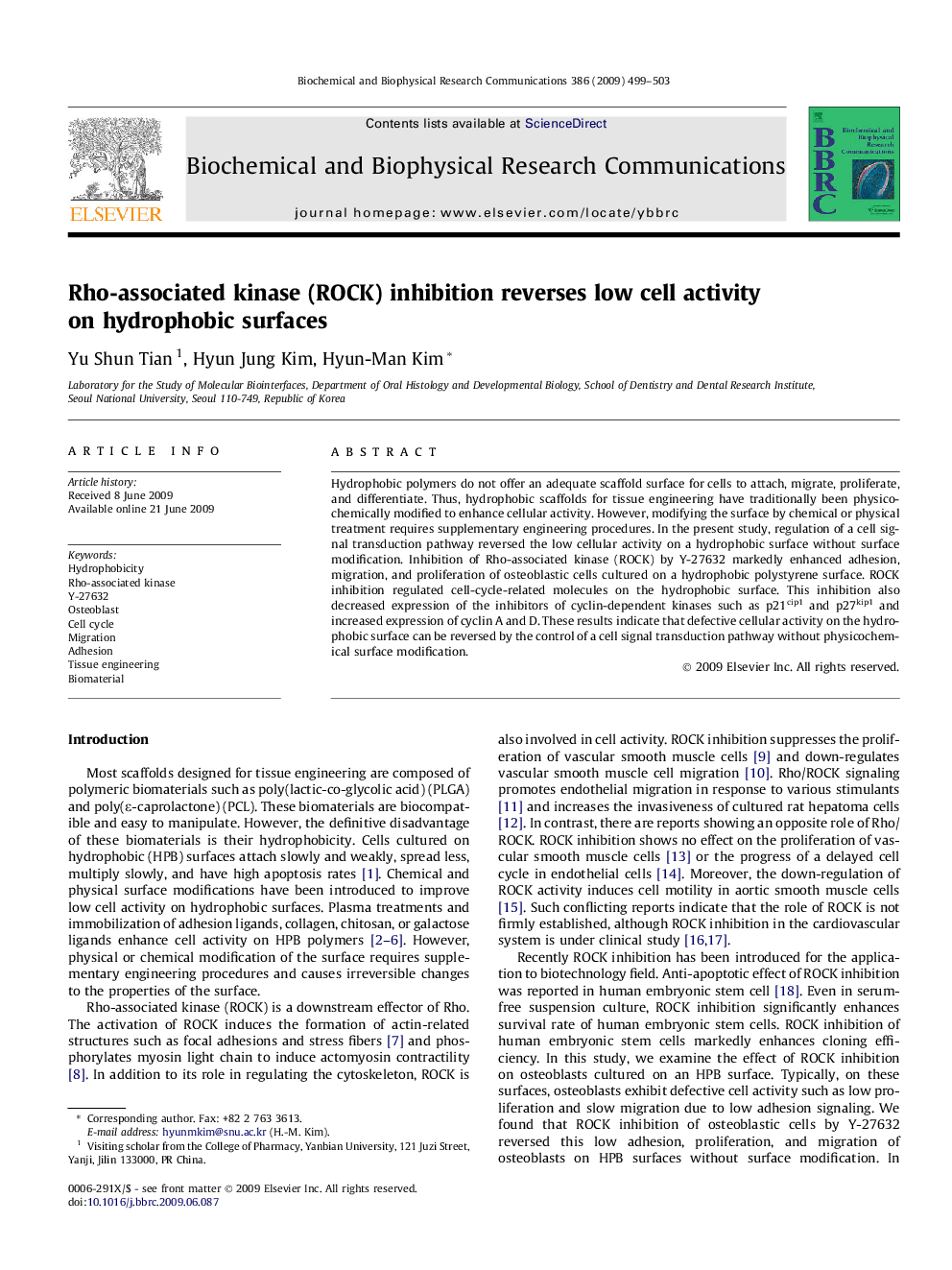| Article ID | Journal | Published Year | Pages | File Type |
|---|---|---|---|---|
| 1933375 | Biochemical and Biophysical Research Communications | 2009 | 5 Pages |
Hydrophobic polymers do not offer an adequate scaffold surface for cells to attach, migrate, proliferate, and differentiate. Thus, hydrophobic scaffolds for tissue engineering have traditionally been physicochemically modified to enhance cellular activity. However, modifying the surface by chemical or physical treatment requires supplementary engineering procedures. In the present study, regulation of a cell signal transduction pathway reversed the low cellular activity on a hydrophobic surface without surface modification. Inhibition of Rho-associated kinase (ROCK) by Y-27632 markedly enhanced adhesion, migration, and proliferation of osteoblastic cells cultured on a hydrophobic polystyrene surface. ROCK inhibition regulated cell-cycle-related molecules on the hydrophobic surface. This inhibition also decreased expression of the inhibitors of cyclin-dependent kinases such as p21cip1 and p27kip1 and increased expression of cyclin A and D. These results indicate that defective cellular activity on the hydrophobic surface can be reversed by the control of a cell signal transduction pathway without physicochemical surface modification.
